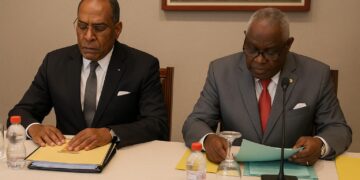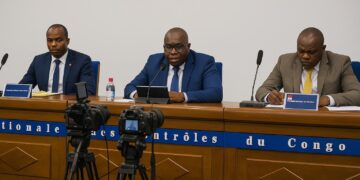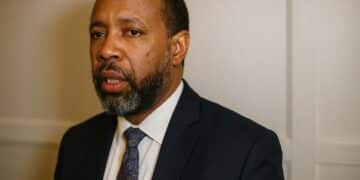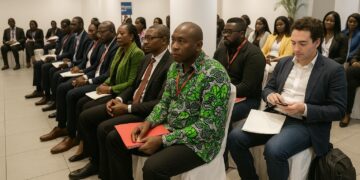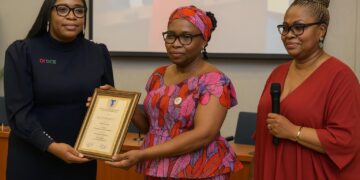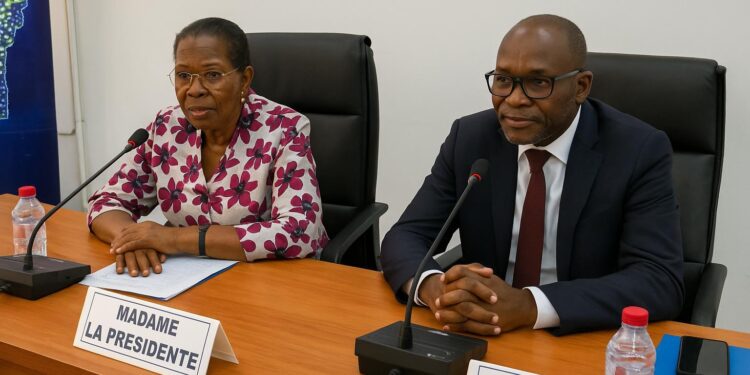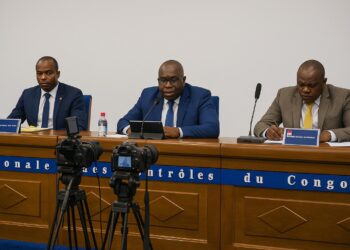Strategic dialogue in Brazzaville
Brazzaville’s riverside conference room was unusually animated on 16 September as Emilienne Raoul, head of Congo-Brazzaville’s Economic, Social and Environmental Council, welcomed Conrad Jean Mauriac Gbaguidi, president of Benin’s Economic and Social Council. Both officials framed their encounter as a technical exchange rather than a ceremonial visit, underscoring concrete deliverables.
Shared mandate for inclusive growth
Raoul and Gbaguidi stressed that social and solidarity enterprises—co-operatives, mutuals, associations and foundations—fit neatly inside their constitutional role of advising government on citizen welfare. “This model is an essential lever for economic development and professional insertion,” Gbaguidi insisted after the closed-door session.
Why the social economy matters now
The International Labour Organization’s 2022 resolution on the social and solidarity economy recognised its ability to formalise informal work and accelerate Sustainable Development Goals, giving fresh impetus to African policymakers. In many sub-Saharan countries, informal activity still represents more than 90 percent of employment and over half of GDP, according to the ILO.
Benin’s cooperative playbook
Benin has spent a decade refining a cooperative statute that grants simplified tax treatment, collective ownership safeguards and dedicated credit lines through the National Fund for Inclusive Finance. Gbaguidi highlighted pilot zones in Atacora where cassava and cotton producers pooled logistics, lifting margins by double digits in two seasons.
Congo’s urban priorities
Raoul outlined Brazzaville’s focus areas: household‐waste management franchises, youth integration schemes and neighbourhood security patrols designed to curb the so-called “Bébés noirs” phenomenon. Her council recently advised the Minister of Interior on a public-private protocol enabling community watch associations to access micro-grants without excessive paperwork.
Complementary economic structures
While Congo relies on oil revenue for roughly 55 percent of fiscal receipts, Benin’s economy leans on trade corridors and agriculture. The two economic councils argue that a diversified cooperative network can help each state hedge external shocks. Congolese urban services could inspire Beninese municipalities; Benin’s agricultural clusters could guide Congolese rural communes.
Financing the grassroots
Regional lenders are increasingly receptive. The Development Bank of Central African States confirmed that it is exploring a blended-finance window, combining concessional loans and impact-investment equity for certified solidarity enterprises. In Cotonou, the West African Development Bank already earmarks 30 million USD annually for the same niche, offering a blueprint for Congo.
Regulatory upgrades on the horizon
Both councils pledged to draft advisory notes urging their respective parliaments to enshrine a clear legal definition of the social economy. Current frameworks reference cooperatives indirectly through commercial codes, leaving gaps on governance, taxation and dispute resolution. Aligning statutes across the two jurisdictions would streamline cross-border ventures.
Data-driven agenda
A joint technical unit will compile a comparative dashboard by mid-2024, tracking membership, job creation, turnover, and gender participation across cooperative sectors. Officials hope the data will back evidence-based incentives, such as tiered tax abatements or credit guarantees calibrated to performance metrics.
Capacity building and talent flow
Diaspora professionals form a crucial talent reservoir. Gbaguidi proposed a digital platform connecting Beninese and Congolese experts willing to mentor start-ups remotely. Raoul added that vocational institutes in Pointe-Noire could host exchange students from Porto-Novo under an Erasmus-style scheme focusing on agri-processing and recycling technologies.
Urban security as economic enabler
Brazzaville’s experience tackling petty crime through community cooperatives is watched closely in Cotonou, where informal motorcycle-taxi stands sometimes double as organisational hubs for local vigilance groups. Officials argue that safer streets reduce transaction costs and boost investor confidence, making security initiatives an integral pillar of the social economy.
Environmental dividends
Waste-collection cooperatives in Ouenzé district report daily retrieval of 70 tonnes of refuse, diverting a fifth toward compost and plastic re-granulation. Such circular-economy practices align with Congo’s commitment to preserve the Congo Basin forests, reinforcing the councils’ message that social enterprises generate both income and ecological co-benefits.
Monitoring impact
The councils intend to publish an annual “solidarity barometer” starting in 2025. Key indicators will mirror ILO guidelines: decent-work compliance, women’s leadership share, community reinvestment ratio and carbon footprint per unit of output. Transparent metrics should help development partners allocate grants more efficiently.
Private-sector participation
Large corporations are not left out. Pointe-Noire’s oil majors have begun allocating portions of their local-content budgets to cooperative suppliers of catering and maintenance services. Gbaguidi cited similar arrangements at Benin’s Glo-Djigbé industrial zone, arguing that linking multinationals to solidarity enterprises accelerates technology transfer.
Next steps and timeline
A memorandum of understanding is expected before year-end, detailing shared training modules, ease-of-business reforms and a roadmap for mutual recognition of cooperative charters. A mid-term review is slated for September 2025 in Cotonou, ensuring momentum persists beyond the inaugural handshake in Brazzaville.
Cautious optimism
Stakeholders acknowledge challenges—from access to patient capital to managerial skills—but remain upbeat. “With structured cooperation, we can turn informality into a source of resilience,” Raoul concluded. By reframing solidarity as an economic rather than charitable concept, Congo-Brazzaville and Benin aim to open fresh space for inclusive, sustainable growth.






